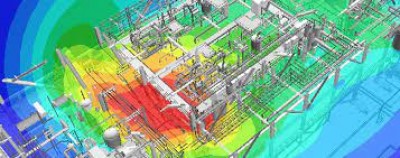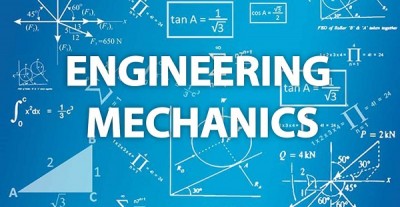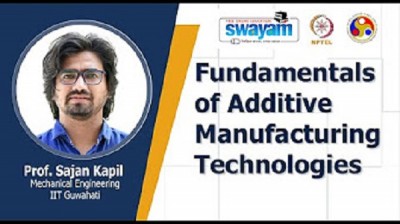Course description
Module-2: Classification of Partial Differential Equations and Physical Behaviour:
Mathematical classification of Partial Differential Equation, Illustrative examples of elliptic, parabolic and hyperbolic equations, Physical examples of elliptic, parabolic and hyperbolic partial differential equations.
Module-3: Approximate Solutions of Differential Equations:
Error Minimization Principles, Functional involving higher order derivatives, Approximate solution of differential equations through variational formulation, Boundary conditions in the variational form: Primary and secondary variables, Essential and natural boundary conditions, Approximate solutions of differential equations, Properties of variational form, Weighted residual approach: trial function and weighting function, Requirement of trial function and weighting function, Least square method, Point Collocation method, Galerkins method, Rayleigh-Ritz method.
Module-4: Fundamentals of Discretization:
Discretization principles: Pre-processing, Solution, Post-processing, Finite Element Method, Finite difference method, Well posed boundary value problem, Possible types of boundary conditions, Conservativeness, Boundedness, Transportiveness, Finite volume method (FVM), Illustrative examples: 1-D steady state heat conduction without and with constant source term.
Module-5: Finite Volume Method:
Some Conceptual Basics and Illustrations through 1-D Steady State Diffusion Problems: Physical consistency, Overall balance, FV Discretization of a 1-D steady state diffusion type problem, Composite material with position dependent thermal conductivity, Four basic rules for FV Discretization of 1-D steady state diffusion type problem, Source term linearization, Implementation of boundary conditions.
Module-6: Discretization of Unsteady State Problems:
1-D unsteady state diffusion problems: implicit, fully explicit and Crank-Nicholson scheme.
Module-7: Important Consequences of Discretization of Time Dependent Diffusion Type Problems:
Consequences of time-discretization in finite discretization, Consistency, Stability, Convergence, LAX Equivalence theorem, Grid independent and time independent study, Stability analysis of parabolic equations (1-D unsteady state diffusion problems): FTCS (Forward time central space) scheme, Stability analysis of parabolic equations (1-D unsteady state diffusion problems): CTCS scheme (Leap frog scheme), Dufort-Frankel scheme, Stability analysis of hyperbolic equations: FTCS, FTFS, FTBS and CTCS Schemes, Stability analysis of 2nd order hyperbolic equations: CTCS scheme.
Module-8: Finite Volume Discretization of 2-D unsteady State Diffusion type Problems:
FVM for 2-D unsteady state diffusion problems.
Module-9: Solution of Systems of Linear Algebraic Equations:
Criteria for unique solution, infinite number of solutions and no solution, Solution techniques for systems of linear algebraic equations: Elimination, Iteration and Gradient Search method, Elimination method: Forward elimination and backward substitution, Assessment of number of computations, L-U decomposition technique, Tridiagonal matrix algorithm (TDMA): Thomas algorithm, Illustrative examples, Norm of a vector, Norm of a matrix, Some important properties of matrix norm, Error analysis of elimination methods, Iteration methods: Jacobis method and Gauss Siedel method, Generalized analysis of the iterative methods, Sufficient condition for convergence, Rate of convergence, Scarborough criteria of sufficient condition for convergence in Gauss Siedel Method, Illustrative examples of Jacobis method and Gauss-Siedel method, Relaxation methods, Preferential characteristics of iterative methods, Multigrid method, Line by line TDMA, ADI (Alternating direction implicit) method, Gradient search methods: Steepest descent method and Conjugate gradient method.
Module-10: Discretization of Convection-Diffusion Equations: A Finite Volume Approach:
Finite volume discretization of convection-diffusion problem: Central difference scheme, Upwind scheme, Exponential scheme and Hybrid scheme, Power law scheme, Generalized convection-diffusion formulation, Finite volume discretization of two-dimensional convection-diffusion problem, The concept of false diffusion, QUICK scheme.
Module-11: Discretization of Navier Stokes Equations:
Discretization of the Momentum Equation: Stream Function-Vorticity approach and Primitive variable approach, Staggered grid and Collocated grid, SIMPLE Algorithm, SIMPLER Algorithm.
Module-12: Unstructured Grid Formulation:
Discretization of the Momentum Equation using unstructured grid.
Module-13: What is there in implementing a CFD code?:
The basic structure of a CFD code: Pre-processor, Solver and Post-processor, User-defined-subroutines, Solution to some basic problems in heat transfer and fluid flow.
Module-14: Introduction to Turbulence Modeling
Important features of turbulent flow, Vorticity transport equation, Statistical representation of turbulent flows: Homogeneous turbulence and isotropic turbulence, General Properties of turbulent quantities, Reynolds average Navier stokes (RANS) equation, Closure problem in turbulence: Necessity of turbulence modeling, Different types of turbulence model: Eddy viscosity models, Mixing length model, Turbulent kinetic energy and dissipation, The κ-ε model, Advantages and disadvantages of κ-ε model, More two-equation models: RNG κ-ε model and κ-ω model, Reynolds stress model (RSM),Large eddy Simulation (LES),Direct numerical simulation (DNS).



















